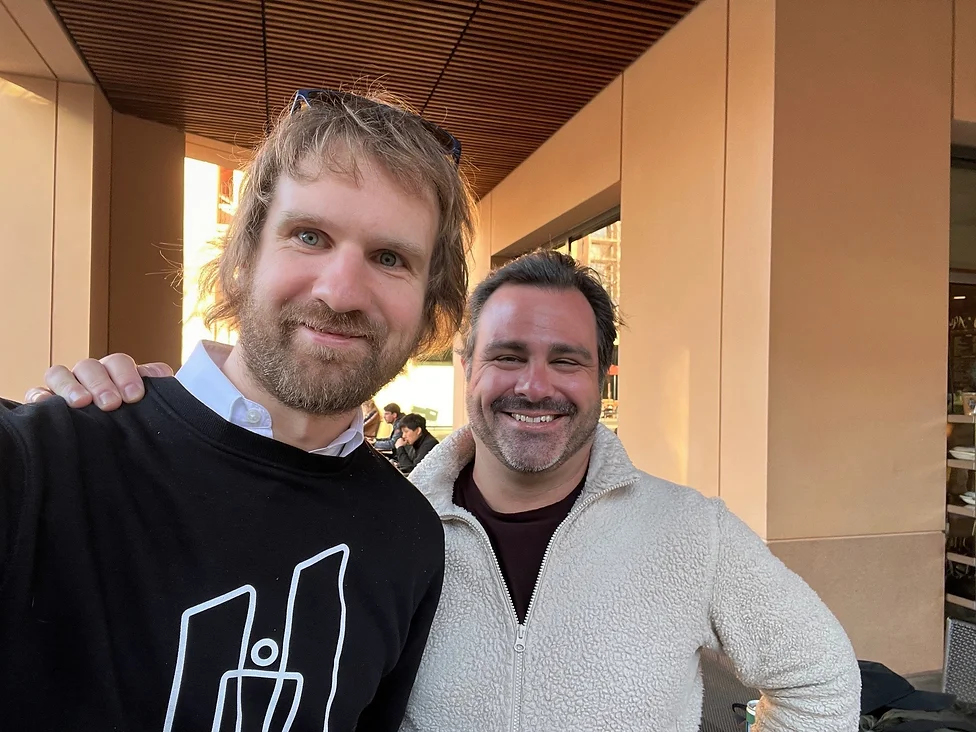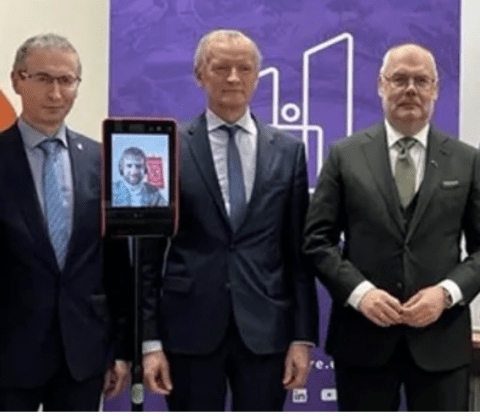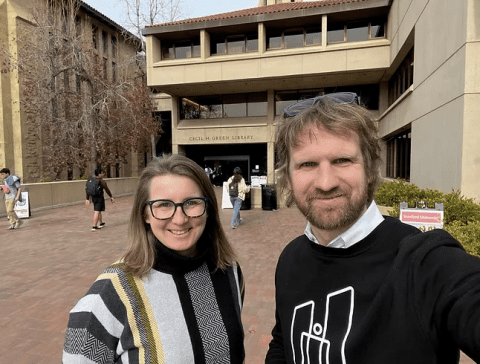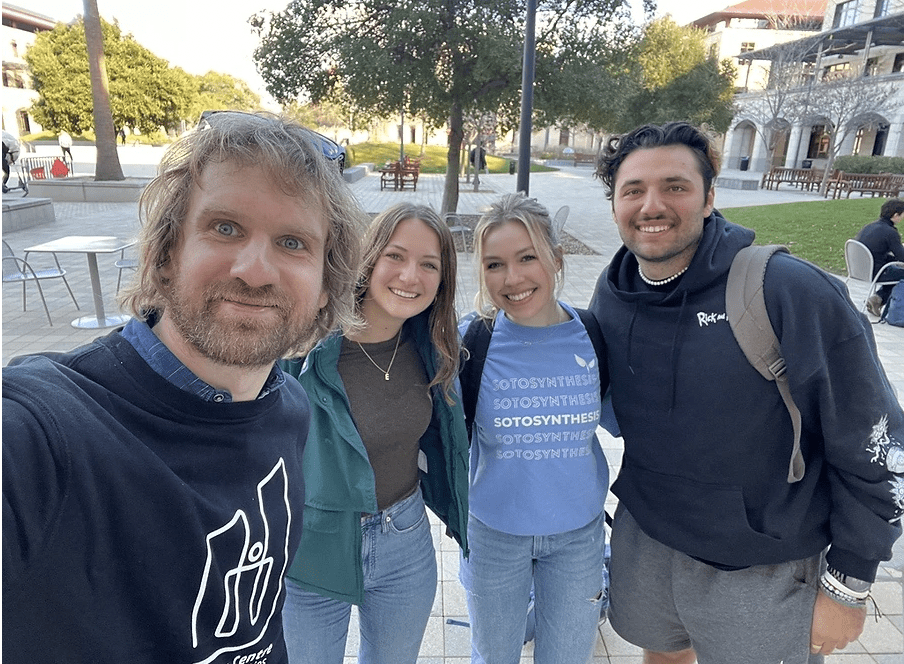The Global Digital Governance Fellowship (GDGF) has effectively helped me to start a collaboration with the majority of key initiatives at Stanford within the movement of smart cities. As a positive surprise, there is way more research going on at Stanford around the smart city concept than I predicted. Institutionally, Stanford does not have one central unit on the smart city but it is rather distributed within several groups. In general, the keyword of „smart city“ is much more popular, and compared to Europe, you don’t get as much of the question of defining the smart city and what it is.
I spent a couple of months in this year at Stanford University with a Global Digital Governance Fellowship for Estonian Scholars. The fellowship continues throughout 2023 as I will go back also this autumn. Here you can read more about my experience and future plans.
Collaboration with key initiatives at Stanford within the smart cities movement
Thanks to being at Stanford in person, I have managed to meet and exchange plans with 10 globally distinguished researchers (professors and/or directors) representing centers, programs, and labs connected to the smart city movement at Stanford:
- Program on Geopolitics, Technology, and Governance (Andrew J. Grotto) – cyber policy and data governance in smart cities.
- Smarter City and Smart Infrastructure (Michael D. Lepech, Jie Wang, Kincho H. Law) – globally novel smart city concept with test site in Korea.
- Urban Informatics Lab (Rishee K Jain) – rapid city-level modeling of transition towards climate-neutral buildings.
- Autonomous Systems Laboratory (Marco Pavone) – autonomous mobility for cities.
- Stanford Exploration Project (Biondo Biondi) – using fiber-optic cables to track urban mobility.
- Urban Studies (Sean F. Reardon and Michael Kahan) – societal aspects of changes in cities: education, migration, poverty, gender gentrification etc.
- Digital Living 2030 (Nick Bambos) – Tel Aviv University-Stanford joint initiative with a key focus on predicting future smart cities.
 First days at Stanford, meeting with Andrew J. Grotto. Photo by Ralf-Martin Soe, 2023.
First days at Stanford, meeting with Andrew J. Grotto. Photo by Ralf-Martin Soe, 2023.
There are also some additional leads that started thanks to the fellowship:
- At least one senior researcher is planning to visit Estonia (FinEst Centre at TalTech) next year.
- At least one student will be invited to visit Estonia (FinEst Centre at TalTech) next year.
- At least one Research Lab will be invited to build a joint research grant application this year.
Thanks to the invitation by Andrew J. Grotto, I have also been enjoying in-person participation in weekly Cyber Policy Seminars and I can recommend to watch the recordings online.
Jointly with the Program on Geopolitics, Technology, and Governance, we are planning to organize one seminar in autumn with an opportunity to introduce my research and innovation related to the smart city movement as my third month of the Global Digital Governance Fellowship at Stanford is scheduled for the fall.
Thanks to a former Stanford visiting fellow from Estonia connecting me with Sabine Remdisch who, based in Germany, is also coordinating the Leadership Garage initiative at Stanford since 2014. She invited me to the Stanford’s D-School visit with executives from Porsche from Germany and Japan visiting Stanford (Head of Research & Development and many other executives were present).
Campus greenery and outdoor meetings
In terms of working with Stanford students, Professor Nick Bambos invited me to participate in mentoring his students at the Management Science & Engineering 130: Information Networks & Services course. I had very inspiring discussions with BA&MA students that chose a course project on “Future of Smart Cities”.
I also mentioned this Global Digital Governance Fellowship to the President of Estonia Alar Karis when he visited the FinEst Centre for Smart Cities in February and asked what I am doing in Stanford. In general, Estonia has a very good reputation among all key researchers I have met. I am sure that Stanford Libraries’ Estonian and Baltic Studies initiative along with our former President Toomas Hendrik Ilves working at Stanford for a couple of years after his tenure have both contributed to it.
 FinEst Centre’s meeting with Estonian President Alar Karis. Joining from Stanford as a robot. Photo by FinEst Centre, 2023.
FinEst Centre’s meeting with Estonian President Alar Karis. Joining from Stanford as a robot. Photo by FinEst Centre, 2023.
From the perspective of the research culture, I enjoyed Stanford a lot, both the green and modern campus and the non-European academic culture. For example, nobody dresses up in a suit for a research meeting, nobody over-addresses anybody with titles, etc. It was enjoyable that the best meetings took place at outdoor cafes and informally. It is really easy to fit in.
Furthermore, unlike the stereotypes – people move around here a lot and eat healthy food. Living in Palo Alto, I also enjoyed cycling and walking to the office at the Cecil H. Green Library – at least 4 times a week (despite of the weather conditions). I was also one of the first test-users of the new demand-based public transport system in Palo Alto that started its service on March 7 – something Estonia’s new government is also considering so I could share this knowledge with the Ministry of Economic Affairs and Communications.
Goals fulfilled and to be continued this autumn
One of my goals was mapping and bridging smart city research and innovation initiatives between Stanford and FinEst Centre. I can say with confidence this goal was fulfilled. My research project continues with an aim to look into how to achieve a digital single market in the urban context, focusing on the technological, cyber, legal, and policy aspects, and with this I have the chance to continue in the autumn. See also my Stanford profile here.
 Meeting with Liisi Esse at the Stanford Library during my first days there. Photo by Ralf-Martin Soe, 2023.
Meeting with Liisi Esse at the Stanford Library during my first days there. Photo by Ralf-Martin Soe, 2023.
I am sincerely grateful for the Kistler-Ritso Foundation for making my Stanford research visit possible, via the GDGF, co-hosted by Freeman-Spogli Institute’s Program on Geopolitics, Technology, and Governance and Stanford Libraries’ Estonian and Baltic Studies (with special thanks to Liisi Esse, Andrew J. Grotto, Sylvia and Andrew Thompson and Michael A. Keller).
Ralf-Martin Soe is the Assistant Professor of Smart City Studies and Founding Director of the FinEst Centre for Smart Cities.

 Back
Back